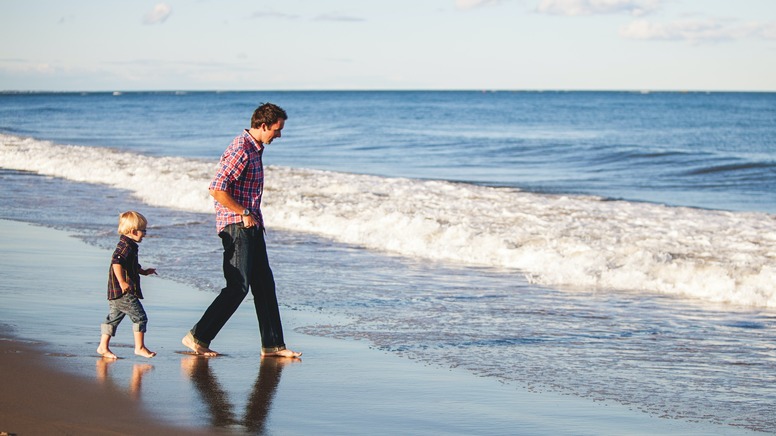Has your union representative made a difference for you and your colleagues? Then you can say thank you by nominating them for the Union Representative of the Year award.
News
Bring your holiday energy with you when you return to work

Hopefully, the summer has given you peace, presence and new energy. But for many people, that feeling quickly disappears when their work calendar is filled with meetings, deadlines and emails again. Not to mention the demands of managing your private life and the calendars and to-do lists of the whole family.
How do we avoid letting our holiday energy drown in the hustle and bustle of everyday life? Two experts each offer their own advice on how we can take the energy from our summer break with us into our working lives – and hold on to it.
Recreate your holiday flow
'During the summer holidays, you probably engaged in activities that made you both engaged and relaxed. This could be hiking trips, fixing up your summer house, playing board games or reading a novel.
Working life consultant at IDA, Morten Esmann, calls it 'getting into flow' when you are so absorbed in an activity. And he believes that you can bring the flow of your holiday to work: 'It’s about recreating the commitment you put into your summer activities when you go about your job tasks,' he explains.
It may sound fluffy to 'be in flow', but it's really just about the fact that we work best when a task is so challenging and at the same time so exciting that we automatically concentrate - but not so challenging that we need a lot of mental breaks.
Morten Esmann gives an example. Think of one activity that got you into a flow during the summer break: Consider what made it a positive and focused activity, and what external conditions made it possible. You can use that insight to analyse your work tasks. What is missing to get into flow?
You may find it easier to get into flow when you are alone and not distracted by your surroundings. In that case, you may need to stick to some days of working from home, even after most people return to the office again.
It could also be that your tasks are either too overwhelming and difficult or, conversely, too boring and unchallenging. Both can affect your concentration level, which is crucial for getting into flow. Of course, you can't completely avoid both difficult and too easy tasks, but it's about being aware that they don't take up too much of your daily life.
Hopefully, you already have some tasks at work where you experience flow when you solve them. These tasks should be cherished and held on to, and also used as a kind of role model when you have to take on new tasks.
Do something good for your body and soul – even during the workday
We.Care's occupational psychologist, Frida Høyrup, points to 4 good habits that can keep your energy up until the next break from work. You may recognise one or more of these habits and perhaps try to implement them as a regular part of your everyday life.
Take frequent breaks
To maintain your summer energy and energy, it is especially important to create a good routine for taking breaks during the workday. Because it is precisely when you take breaks that your body and brain are allowed to recover.
Research shows that our cognitive abilities last for about 45 minutes of total concentration time. After that, we need a break from what we are doing.
Get inspiration for where and how you can take breaks at work
Prioritise social relationships – also at work
After the holidays, we may find that the demands and routines of everyday life make it difficult to prioritise social activities, but that nevertheless makes it just as important to maintain the habit of spending time with others. This is what gives life value and joy. And this is precisely what maintains the good energy of the summer when we return to work.
Here it will also be valuable to prioritise socializing with good colleagues during breaks during the day, so that we can recharge our social batteries. Regardless of whether we are introverts or extroverts, as humans we are social beings who need to feel that we belong in a group.
Exercise – preferably during working hours
During the summer holidays, many of us use our bodies much more than we do on a daily basis at the office, and we find that it does something good for both body and soul. You can take this with you into everyday life by prioritising, for example, some stretching exercises, always taking the stairs or a walk during breaks.
If it is not possible to incorporate exercise into working hours, you might be able to use your transport time actively – for example, by cycling or getting off the bus a stop earlier.
Read about Mads, who introduced exercise during working hours
Do breathing exercises
When the stress and hustle of everyday life hits, we quickly long for the calm pace of the summer holidays. Breathing exercises are the fastest and most effective tool for maintaining calm after the summer holidays and for avoiding stress.
This can be done, for example, by shifting your focus away from your thoughts and instead directing your attention to your inner experience of breathing. Focus on your breathing or on a specific place in your body. The slower your breathing, the calmer your nervous system becomes. Breathing exercises can be done anytime and anywhere and without others taking notice.